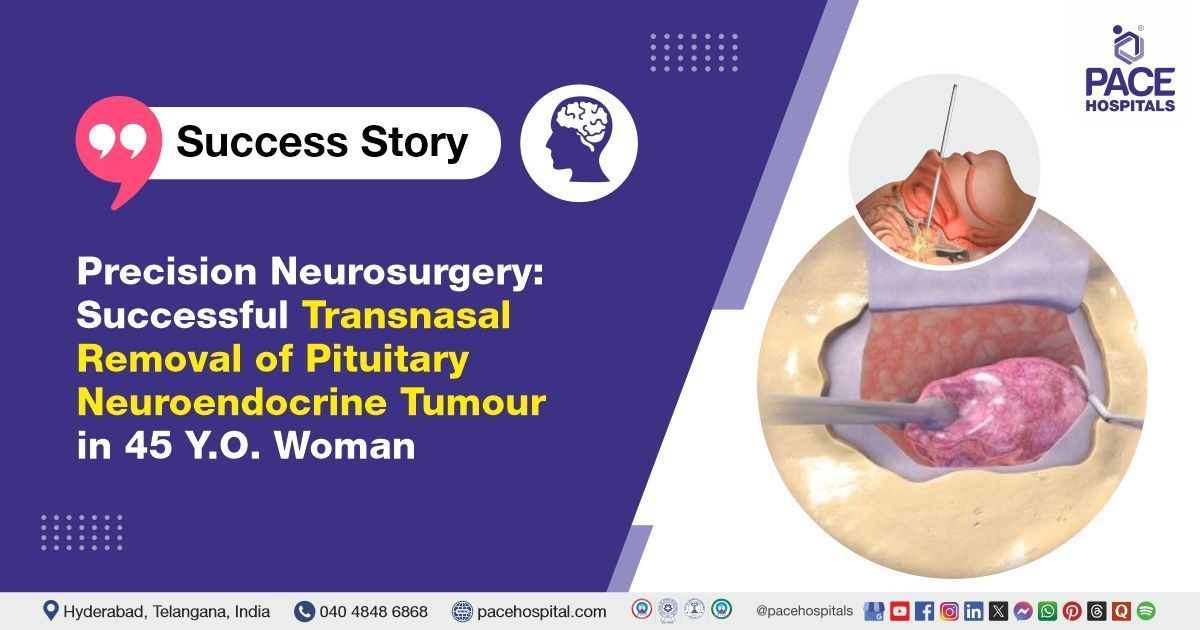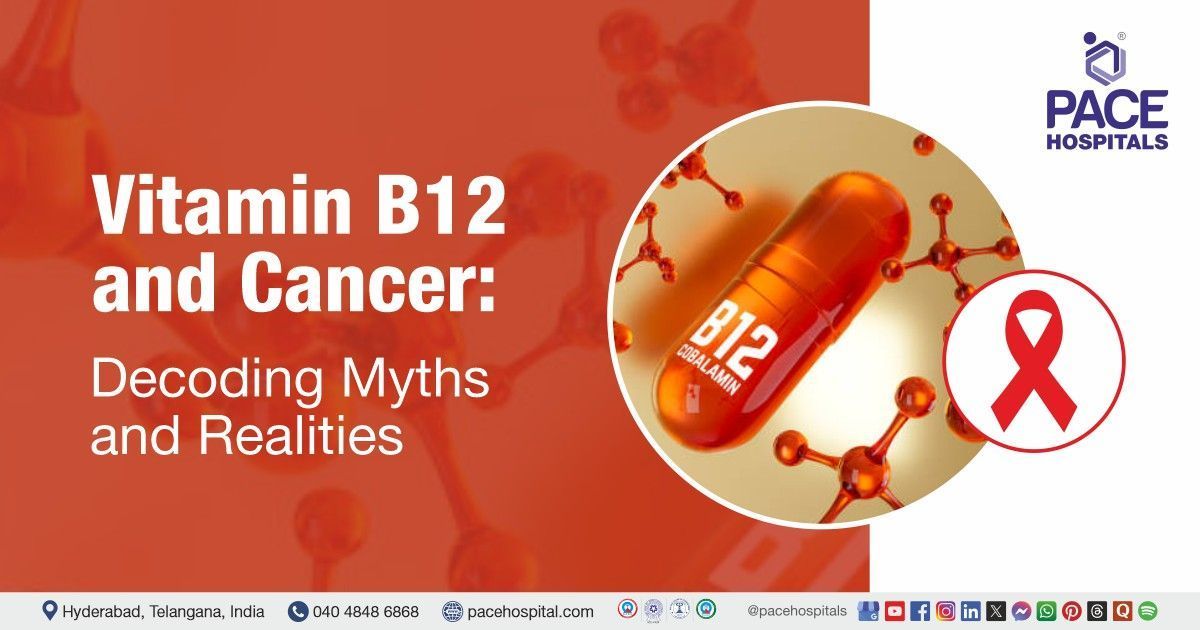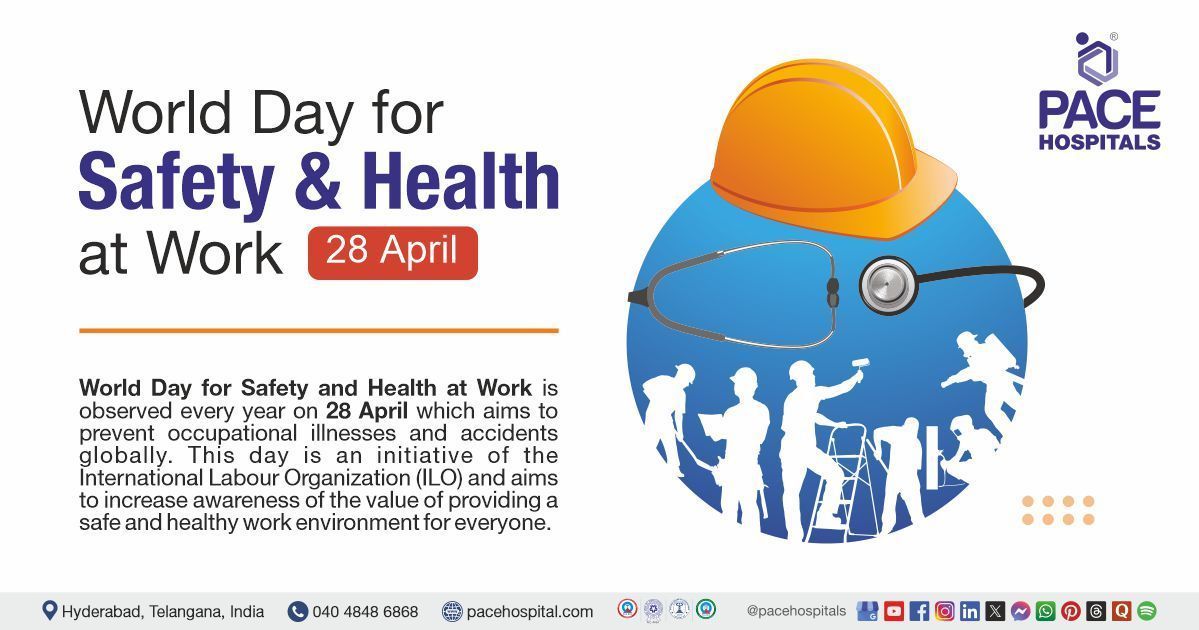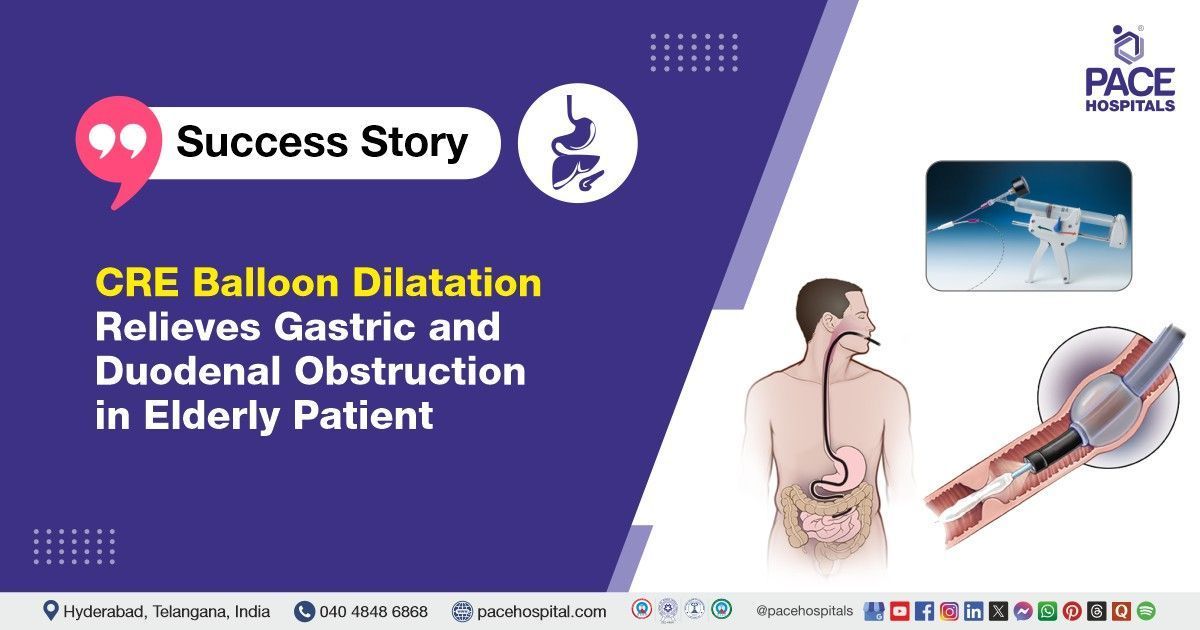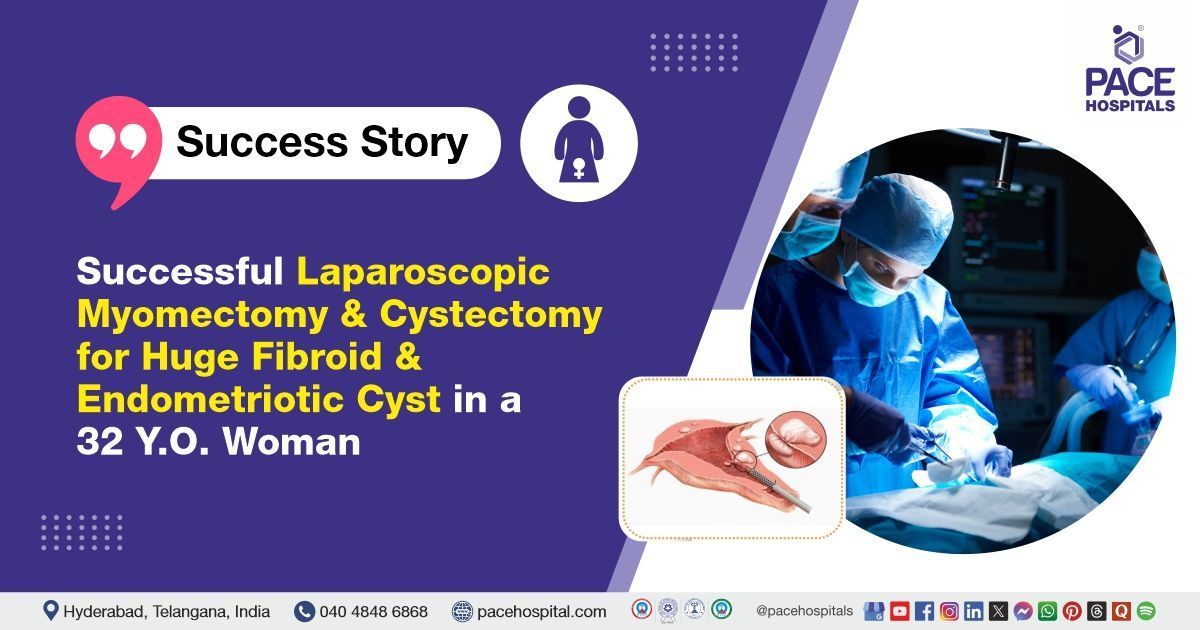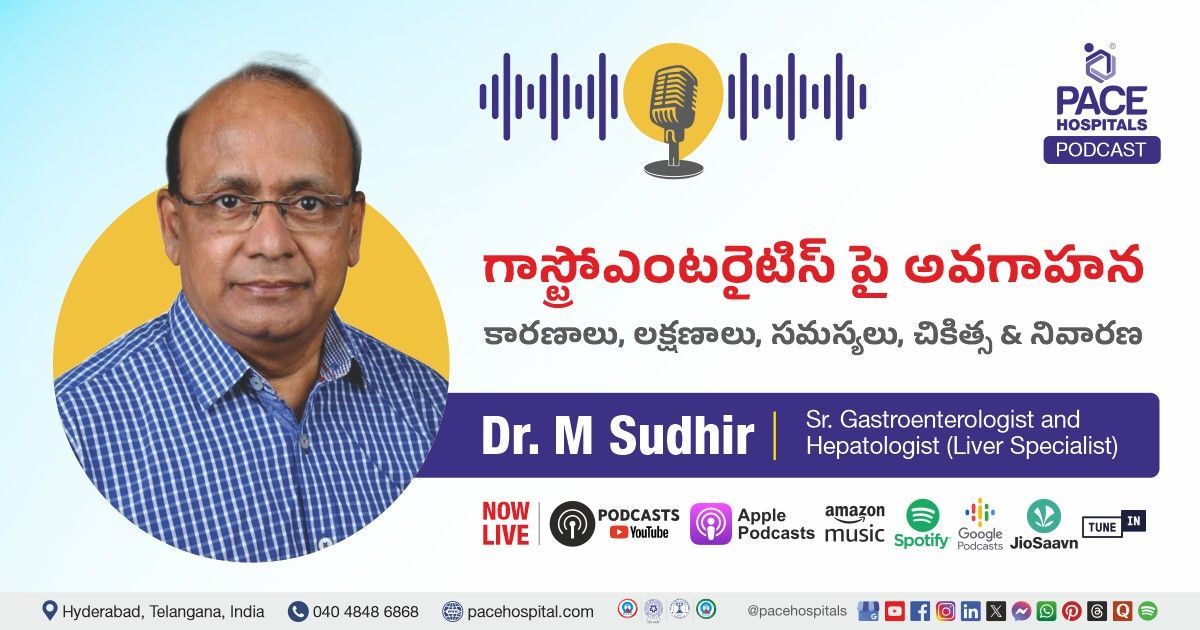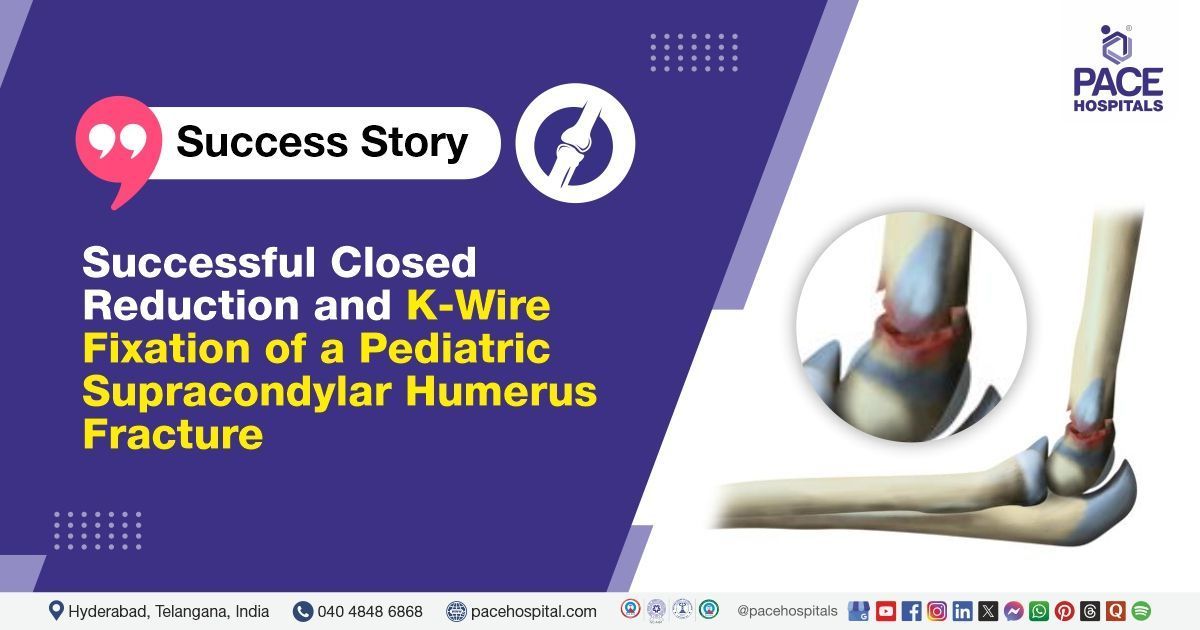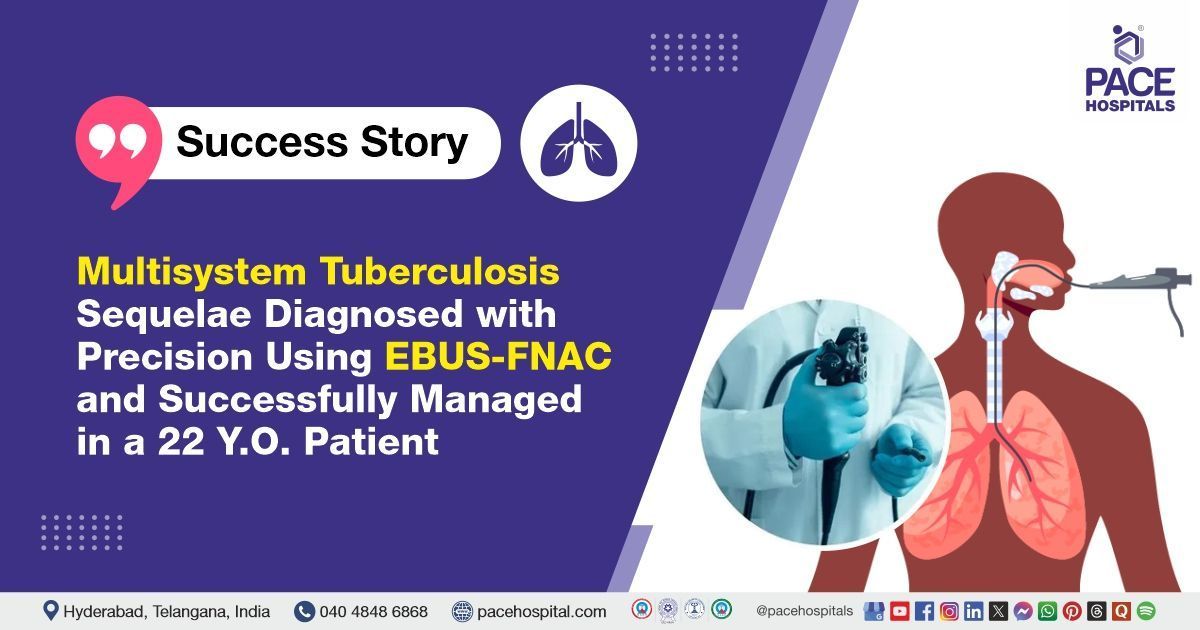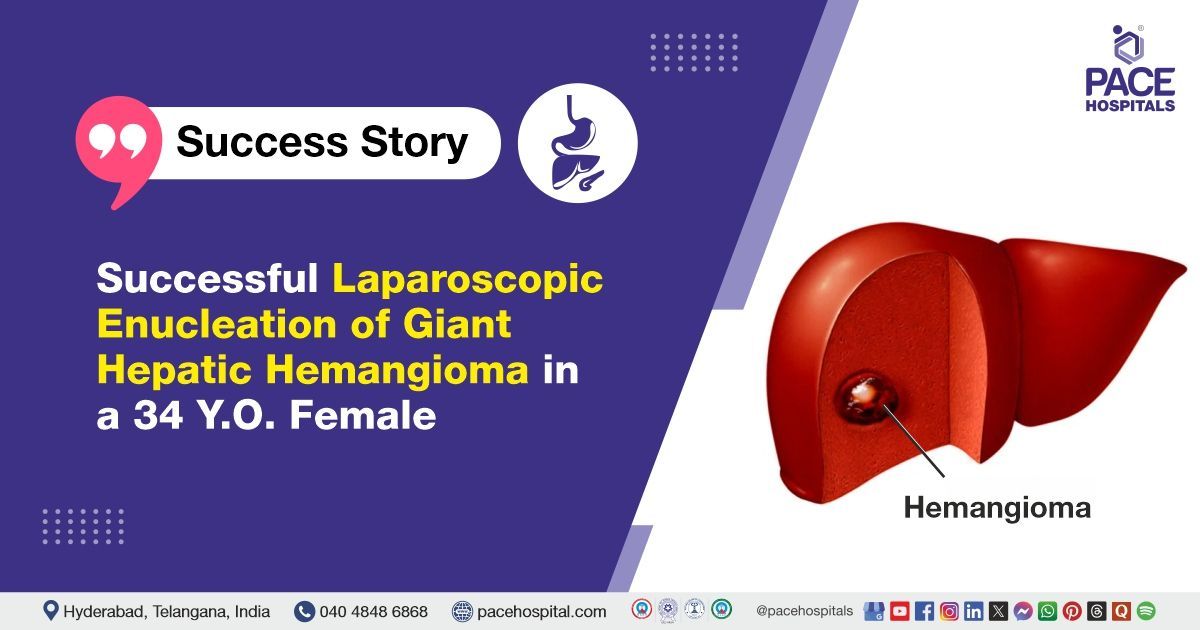Successful Transnasal Removal of Pituitary Macroadenoma in a 45 Y.O. Woman
PACE Hospitals' Expert Surgical Neurology Team successfully performed a minimally invasive Transnasal & Transsphenoidal excision of a Pituitary Macroadenoma on a 45-year-old female who presented with persistent headaches, visual disturbances, and hormonal imbalance, offering the patient a quick recovery and relief from her debilitating neurological symptoms.
Chief Complaints
A 45-year-old female patient from Bangladesh, with BMI within the normal range, presented to the Department of Neurosurgery at PACE Hospitals, Hitech City, Hyderabad, with a two-year history of persistent headaches and progressive vision loss in both eyes, which worsened significantly over the past two months, accompanied by intermittent vomiting.
However, there was no history of
seizures, loss of consciousness, or weakness of the limbs or facial muscles, important clinical considerations to rule out broader neurological or vascular involvement. This pattern of symptoms raised suspicion for a space-occupying lesion compressing the visual pathways, leading to further evaluation.
General Examination
Upon admission to PACE Hospitals, the patient’s vital signs were stable. The general examination revealed bitemporal hemianopia, with no associated motor or sensory deficits. Pupillary assessment showed bilateral equal and sluggish reaction to light (ESRL).
On fundus examination, the visual acuity was recorded as 6/36 in both the right and left eyes. Fundoscopy revealed bilateral temporal pallor of the optic discs, indicating possible optic nerve involvement. Visual field-testing demonstrated a bitemporal hemianopia, which is suggestive of a lesion affecting the optic chiasm, commonly associated with compressive pathologies such as a pituitary adenoma or other masses in the sellar region (the area at the base of the skull where the pituitary gland sits, within a bony structure).
Diagnosis
After being admitted to PACE Hospitals, the patient underwent a thorough review of her medical history and a detailed clinical examination by the neurology team, which led to the suspicion of a pituitary macroadenoma.
The diagnosis was confirmed by the neurosurgeon/neurosurgery doctor through several investigations, including:
CT PNS Plain revealed a large mass in the pituitary fossa with parasellar, suprasellar, and sphenoid sinus extension.
CT Brain showed a soft tissue mass arising from the sella turcica, extending into surrounding structures, suggestive of a pituitary macroadenoma.
MRI Brain identified a large, well-circumscribed solid sellar-suprasellar mass measuring 4.7 x 3.3 x 6.3 cm.
Hormonal evaluation showed a very low growth hormone level (0.03 ng/ml), and other hormonal changes (elevated FSH), supporting the diagnosis.
Based on the confirmed diagnosis, the patient was advised to undergo Pituitary Macroadenoma Treatment in Hyderabad, India, under the expert care of the Surgical Neurology Department.
Medical Decision Making (MDM)
Following a detailed consultation with Dr. U L Sandeep Varma, the consultant neurosurgeon, and a team of highly skilled neurosurgeons, a comprehensive evaluation of the patient's condition was carried out.
After thoroughly reviewing the clinical findings and imaging results, it was concluded that transnasal and transsphenoidal Excision of the pituitary macroadenoma was the most effective solution to address the patient’s symptoms and underlying condition. This decision was reached after careful consideration of all non-surgical alternatives and the potential advantages of surgery in ensuring a favourable outcome and optimal recovery for the patient.
Surgical Procedure
Following the decision, the patient was scheduled for a Transnasal and Transsphenoidal excision of a Pituitary Macroadenoma Surgery in Hyderabad at PACE Hospitals, under the expert supervision of the Neurology Department.
After undergoing the necessary pre-anaesthetic evaluations and receiving medical clearance, the patient was prepared for surgery. The procedure, a transnasal and transsphenoidal excision of the pituitary macroadenoma, was carefully performed to ensure optimal access to the tumor through the nasal cavity and sphenoid sinus. The surgery was completed successfully, with the tumor being fully removed, offering the patient a high chance of recovery and relief from the debilitating symptoms.
Postoperative Care
The patient’s postoperative recovery was smooth and uneventful, with no complications observed
Medications Advised During the Stay
During her hospital stay, the patient was advised of medications including intravenous antibiotics, intravenous (IV) fluids, proton pump inhibitors (PPIs), and other supportive treatments to facilitate recovery and maintain clinical stability.
Condition at Discharge
The patient remained conscious, alert, and responsive to commands, with stable vital signs and no fever. There were no new motor or sensory deficits observed, and no signs of cerebrospinal fluid (CSF) rhinorrhoea or clinical indications of meningitis.
These post-operative checks were performed to ensure that the surgery was successful and to monitor for any potential complications, such as infection or neurological deficits, which could impact the patient’s recovery.
Discharge Notes
The patient was discharged in a hemodynamically stable condition, with the following medications and advice for continued recovery and follow-up care.
The medical team ensured that the patient had made satisfactory progress and was in a hemodynamically stable condition before discharge. She was provided with the necessary medications and instructions for continued recovery, along with advice for follow-up care.
Discharge Medications
Upon discharge, the patient was prescribed a combination of medications, including antibiotics, proton pump inhibitors (PPIs), non-steroidal anti-inflammatory drugs (NSAIDs), and nutritional supplements. The patient was also advised to maintain a normal diet during the recovery period.
Emergency Care
The patient was advised to seek immediate medical attention at the Emergency Ward of PACE Hospitals if any alarming symptoms occured, such as fever, severe pain, vomiting, seizures, loss of consciousness, or signs of cerebrospinal fluid (CSF) rhinorrhoea.
Review and Follow-up Notes
The patient was advised to schedule a follow-up appointment with the Neurosurgeon in Hyderabad at PACE Hospitals either on an as-needed basis or routinely after three days, to monitor her recovery and ensure optimal post-operative care.
Conclusion
This case underscores the effectiveness of minimally invasive techniques, such as transnasal and transsphenoidal excision in Non-Cancerous Pituitary Tumors treatment in Hyderabad, India. These procedures allow for successful tumor removal while preserving the surrounding healthy tissue, ensuring optimal patient outcomes.
Advantages of Minimally Invasive Transnasal and Transsphenoidal Excision for Pituitary Macroadenoma
Transnasal and transsphenoidal excision of a pituitary macroadenoma is a highly effective, minimally invasive surgical technique for removing pituitary tumors. Unlike traditional open surgeries, which require large incisions and extended recovery periods, this approach involves accessing the tumor through the nasal passages and sphenoid sinus, eliminating the need for a craniotomy. The primary advantage of this technique is its ability to remove large tumors while preserving surrounding healthy tissues, thereby reducing the risk of complications. The minimally invasive nature of the procedure also significantly decreases postoperative pain, shortens hospital stays, and accelerates recovery times. Furthermore, it minimizes the risk of infection, scarring, and damage to critical structures like the optic nerves and hypothalamus. As a result, patients experience a quicker return to normal activities and improved overall outcomes. This approach has become the gold standard in treating pituitary macroadenomas, offering both safety and efficiency compared to traditional surgical methods.
Share on
Request an appointment
Fill in the appointment form or call us instantly to book a confirmed appointment with our super specialist at 04048486868

